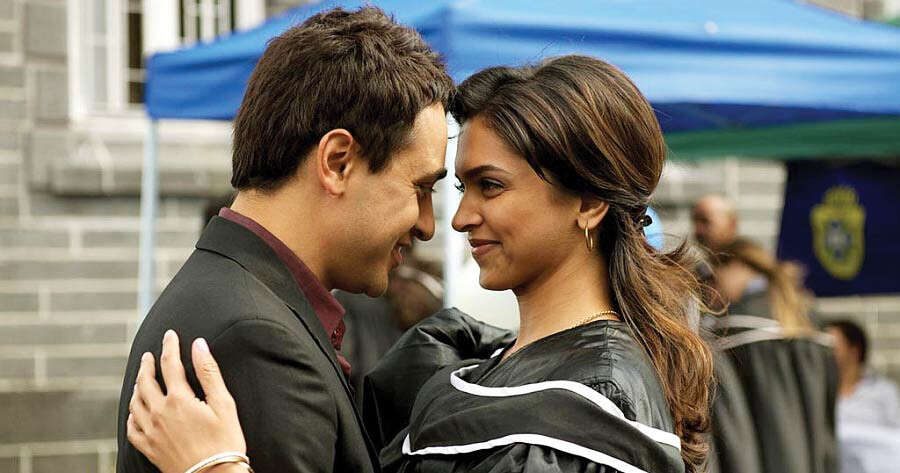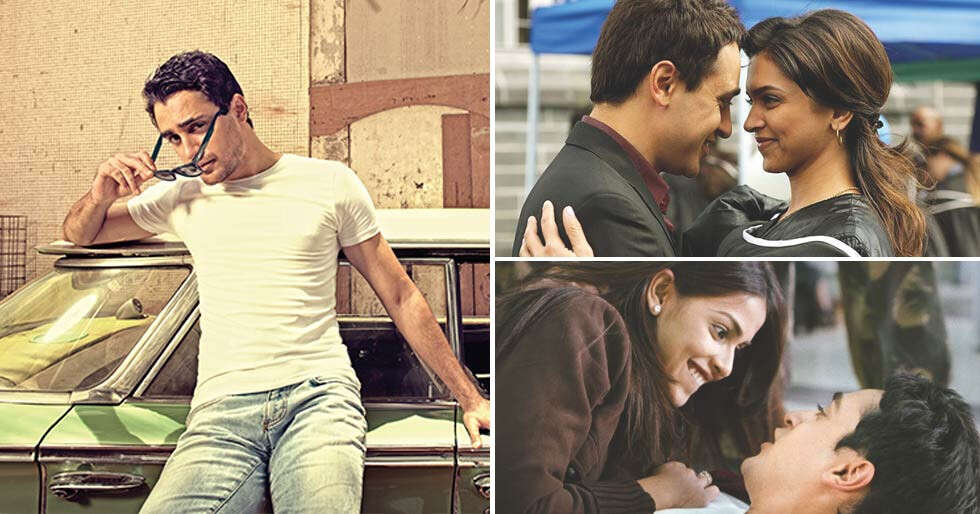
What is the best and worst piece of advice, say Aamir Khan or Mansoor Khan have given you?
Those guys never gave me any advice, man. Mansoor mamu was too busy making cheese up in the hills.
Mansoor was such a fine filmmaker and human being. Don’t you think he gave up too soon?
It’s a family problem. Every so often, we need to run off and disappear into the mountains. You meditate, you learn Kung fu and then you come back. It is the family approach.
What is the conversation when there’s a family reunion?
It’s never really film-related now. With so many family members working in the business, everyone has their own projects moving forward. So, when we meet, instead of catching up on films, we talk about other things.
Do you meet often as a family?
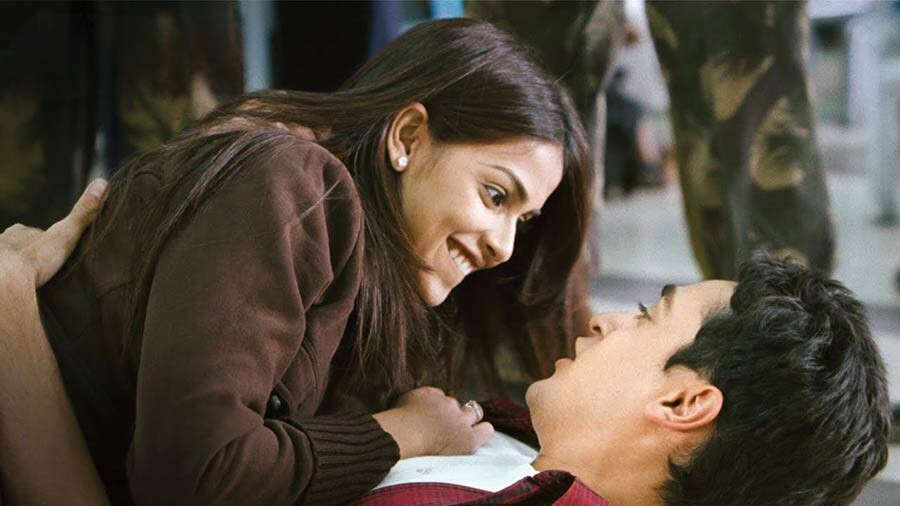
What has been Mansoor’s and Aamir Khan’s influence on you as an artiste?
Can you give an example?
People often say if you’re street smart, you should take certain roles, or work with specific producers or directors to advance your career. They claim you should follow trends and pick popular genres. But the idea that a ‘type’ of film guarantees success is ludicrous. Films succeed if the audience connects with them. You could make 30 brilliant action films and all would work, but a dull one won’t, even in a trend. The notion of choosing roles purely as smart career moves never really resonated with me.
What has been Aamir’s overall impact on you and is there something you would like to do as he does?
In my own way, I’m tremendously guided by him. Whenever I’ve faced a dilemma, I’d often ask myself: what would Aamir do? I may not always approach things the way he does; our methods and beliefs can differ. But at the core, he’s always been driven by integrity and authenticity. The idea is to do what’s right, what’s morally justifiable and to render a story in the most truthful way possible. Even if we differ creatively, the intent remains the same and that ethos continues to guide me to this day.
Is there any Aamir Khan film that you disagreed with or questioned?
There’s some of his 90’s films that have not aged well and when you look at them through a modern lens, they are kind of problematic. There are moments that are quite uncomfortable. Raja Hindustani is one which was a staggering hit. It’s very uncomfortable to watch with today’s sensibilities. There are a fair number of his ’90s films that are uncomfortable by today’s measure.
Did your parents’ separation and your mother second marriage impact your personality in any way?
In a way that’s quite the opposite of what you’d expect, my parents divorced when I was about three. I was born in the States and we moved to India soon after. By the time I was four or five and in school in Mumbai, I was the only kid in class with divorced parents. But the way my mum explained it and how my family handled it, made it clear there was nothing to be ashamed of. When she remarried, I suddenly had two fathers, both loving and supportive. So early on, my perspective shifted. I didn’t feel awkward or lesser. If anything, I felt blessed with 50 per cent extra.
What were the kind of conversations you had with your grandfather, Nasir Hussain?
Never about work. My grandfather, to me, was a magician of a storyteller. My earliest memory is running up to him and saying, “Nana, tell me a story,” and just like that, he’d start weaving one. He always made me the protagonist, something perhaps left over from the old days. Every time, it was a new, magical, fantastical tale and it completely enthralled me. That’s really where I fell in love with storytelling, taking someone on an emotional journey through the story you’re telling.
What will be your message to a young Imran Khan?
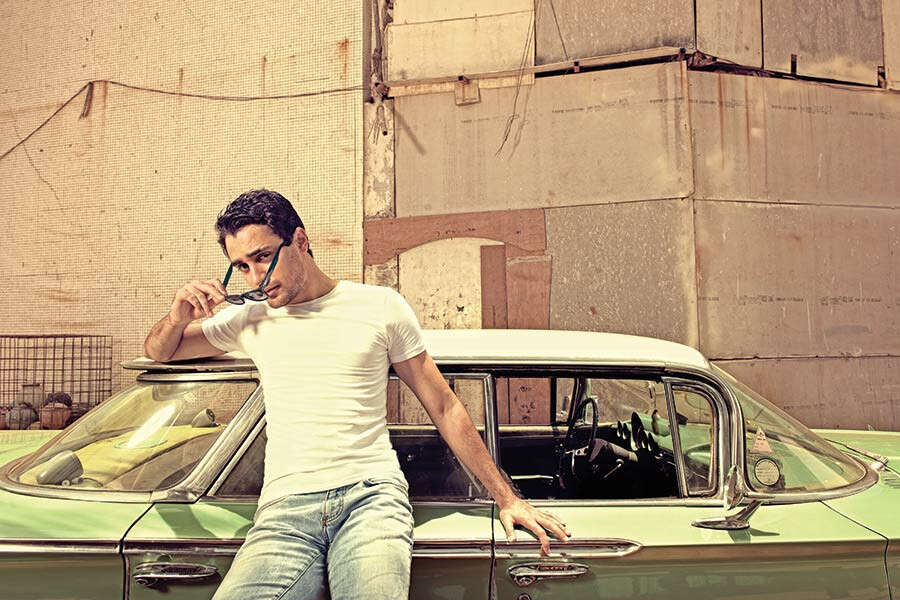
Were there decisions you had to take just because it was a ‘cool thing to do’?
Not overtly. Looking back, I have a close and fond relationship with every film I’ve made. I tried to be as honest as possible in each one. They’re extensions of myself. I poured in blood, sweat, tears, time, and energy, alongside people I admired and loved. Each film is dear to me. So no, I don’t regret the work I’ve done. If anything, I regret not taking more chances.
A film like Break Ke Baad faced criticism at release, but 10-12 years later, it’s called a cult classic and fans want Imran back. How do you feel about that?
It’s easy, even today, to buy into the idea that the ultimate measure of a film is how much it earns at the box office. I believe that’s one valid metric but not the only one. To me, the real measure is whether people revisit your film over time. There are plenty of films from 10 or 15 years ago that made a lot of money but no one re-watches them or remembers them fondly today. That, to me, is a successful commercial product, not necessarily a successful film.
You started off your career being compared to Ranbir Kapoor. Along with already carrying the burden of being from a film family, did that sort of put you on the back foot?
I don’t have an outgoing persona. I’m more reserved and shy, with a lot of self-assessment in how I engage with the world. Even early on, I felt, I’m not some great actor, just a guy trying. I never saw myself as particularly accomplished. I’d look at peers like Ranbir, such a fine actor, and often felt I didn’t measure up. Thoughts like, “I’m not as good a dancer,” or “I’m not as muscular,” would surface. In my head, I was always playing catch-up to others.
You’re from a generation of kids who were caned at their schools. Did it sort of impact your personality in any way?
Jo Jeeta Wohi Sikandar released in my final year of school in Mumbai. I had a small role as junior Aamir, and there’s a memorable moment in the song where I’m cycling and my elder brother pulls my pants down, exposing my butt on screen. That scene was shot without me knowing what would happen. This was the ’90s and the idea of consent wasn’t really considered. Today, we’d rightly question that. At the time, I was nine and suddenly all the kids at school had seen it. There was teasing and ragging. That’s when I realised I needed to develop a thick skin to deal with things like this.
What was it that made you reflect within yourself and address your problems with mental health?
Acting is an emotional rollercoaster that demands strong emotional balance, which I wasn’t fully prepared for. Around the time Imara was born, I took a break, returned briefly for Katti Batti, but felt something was missing. I stopped taking films just because they came my way and began seeking deeper meaning in my work. I realised I was scared and emotionally closed off. Admitting that and committing to emotional and psychological growth became a turning point for me around mid-2016.
Were you feeling anxious or depressed?
Between 2015 and 2016, I couldn’t sleep. I’d force myself to bed, only to wake at two or three in the morning; throat tight, heart pounding, lying there sweating and choking for hours. But I never admitted it was anxiety. It took years to normalise it enough to look back and realise, none of that was normal.
Did it have anything to do with the breakup of your marriage?
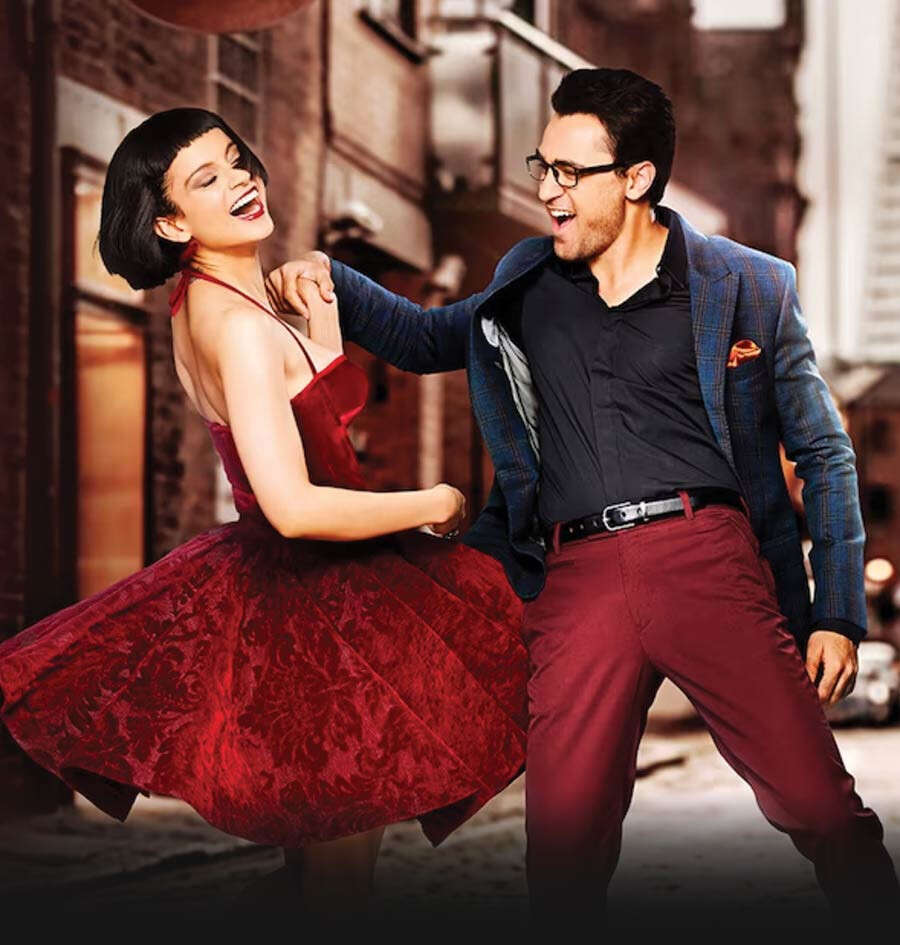
What would be your advice to men who are grappling with mental health issues?
Our society defines strength too narrowly, often equating it with physical power. Emotional strength is undervalued. It’s not about “boys don’t cry” or avoiding pain. I prefer the term ‘limiting masculinity’ over ‘toxic masculinity’. It highlights how masculinity excludes traits like emotional sensitivity. Restrictive masculinity tells men they can’t feel pain or show tenderness but true strength lies in feeling and accepting pain. We need to shift the narrative to include tenderness, love and joy. Watching my daughter laugh moves me deeply, isn’t that masculine too? I believe it is.
What are the kind of conversations your daughter has with you?
My daughter and I share a deeply close and open relationship, something I’ve been intentional about nurturing. I’ve wanted her to feel secure, to know I’m always there for her and that she can speak to me without fear of judgement. We’ve grown together. She’s shared emotional parts of herself with me, and at times I’ve been overwhelmed by the depth of that trust. It’s truly priceless.
There’s usually a stigma attached to men not working for long periods and getting disturbed due to mental health issues. Did you have to deal with those conflicting emotions?
There was a fair bit of that for some time. Again, it feeds into that restrictive masculinity space that as a man if you are not going to work and you are not earning then what are you? How can anyone respect you? What is your worth?
Why did you decide not to work at all?
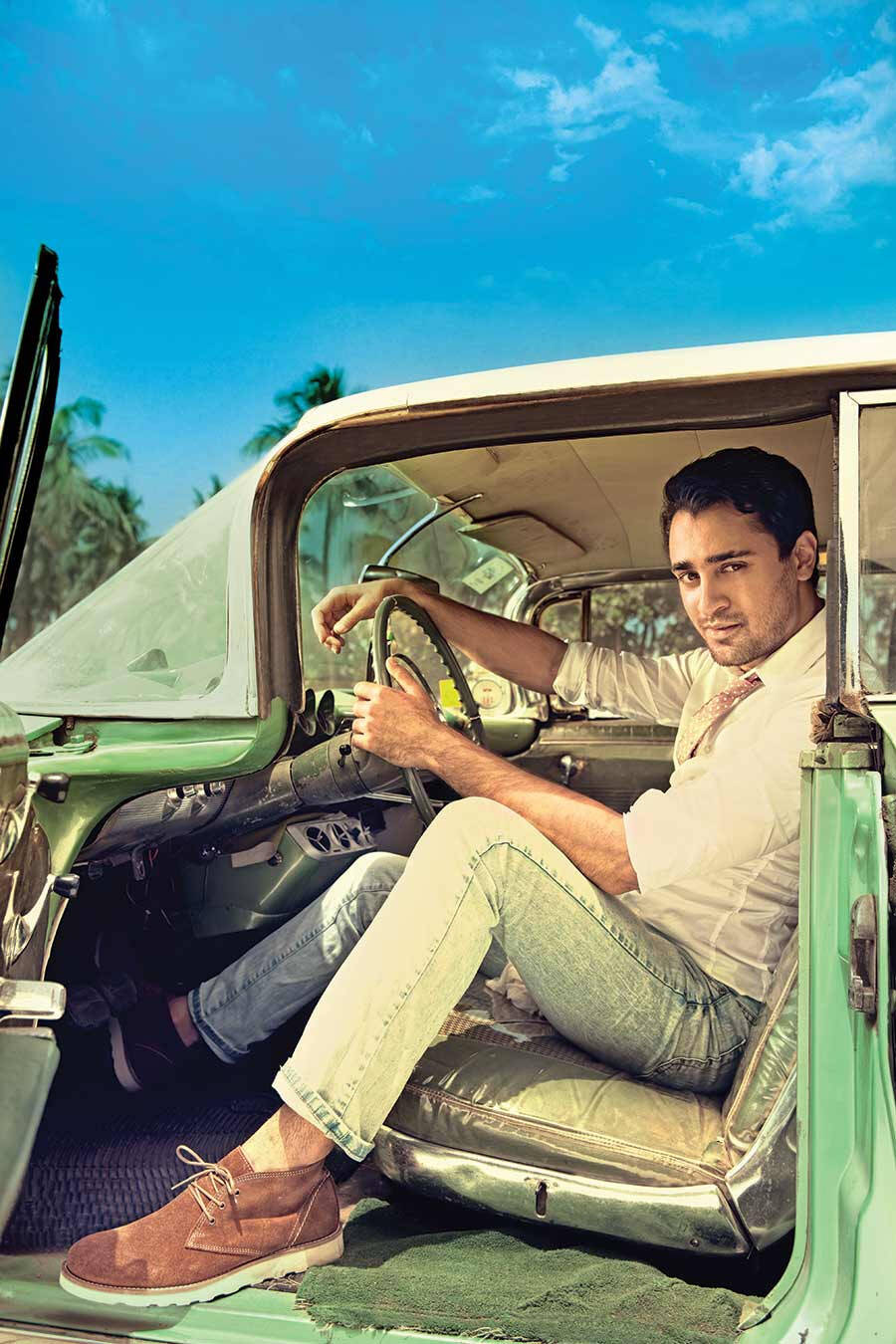
Did discussing mental health bring your family closer than ever?
As everyone in the family began exploring their own emotional and mental health journeys, it naturally brought us closer and broke down generational barriers. While some families have rigid or formal dynamics, ours has become fluid and egalitarian. We speak openly, say, “I’m dealing with this,” and listen with kindness, empathy and support. There’s no judgement, only acceptance and understanding.
You did distance yourself a lot from the industry during that break. Was that a good thing according to you?
While working, you sometimes form close bonds. Some colleagues stay just friendly, but those who become true friends are there for the long haul. Many directors I worked with, Punit (Malhotra), Danish (Aslam), Ali (Abbas Zafar), became close friends and remain so today. They were often puzzled by my choices to step back from films and work less, so it was sometimes hard for them to understand. Yet many industry friends stayed supportive and understood my situation completely.
What are some of the relationship things that you would unlearn or undo or do differently today?
I now have a clearer understanding of acceptable boundaries in relationships. Thanks to social media, terms like ‘red flag’ and ‘green flag’ are common, phrases unheard of 20 years ago when I was in my twenties. Today, I recognise who I am and my valid boundaries. Expressing these without fear of punishment is a key lesson I’ve learnt, which
I apply to all relationships, not just romantic ones. Everyone is entitled to their own boundaries.
When it comes to Lekha Washington, how did she reach out to you and how do you navigate your relationship this time around?
